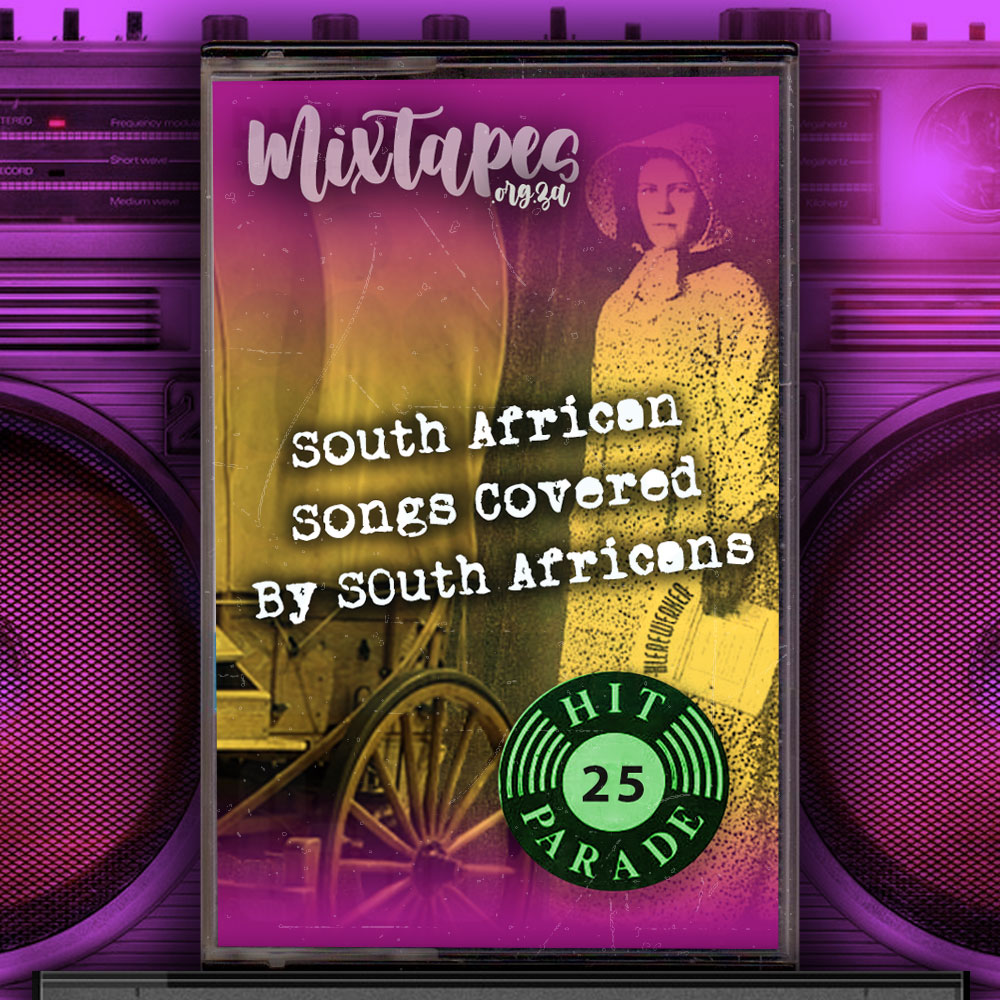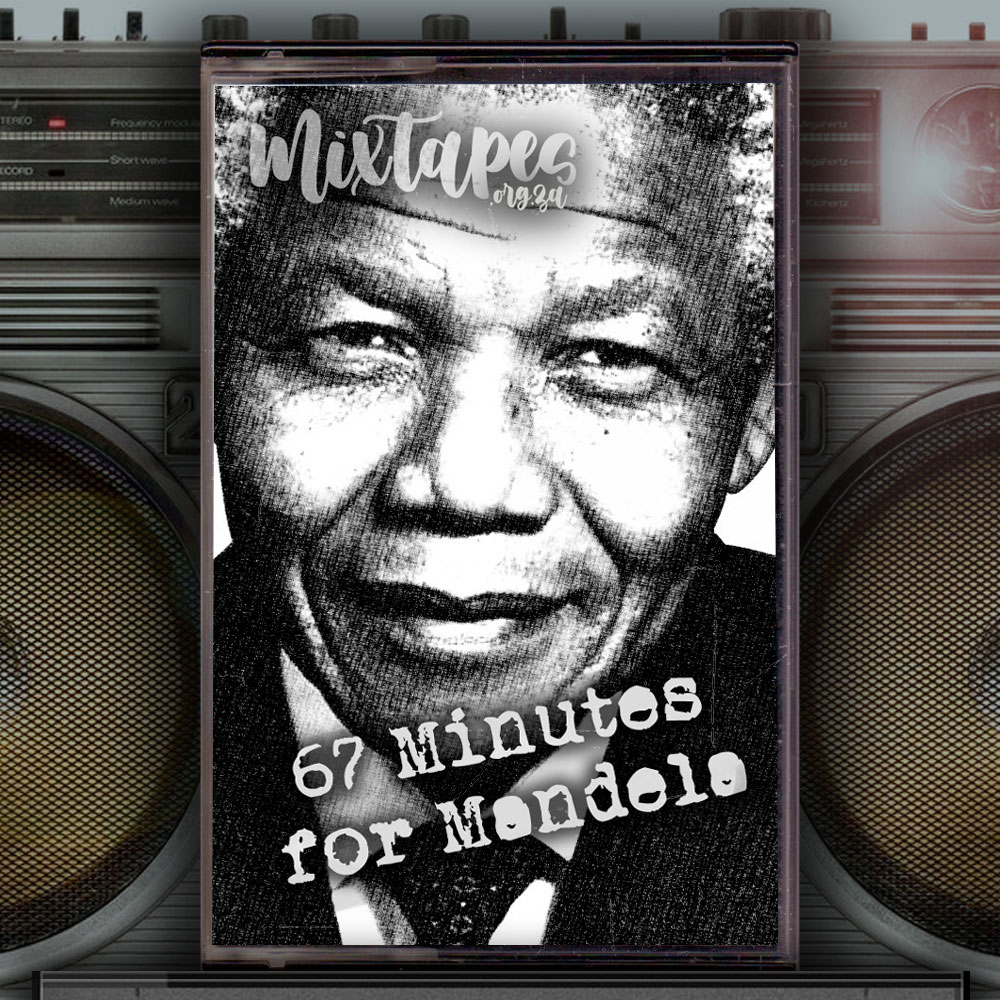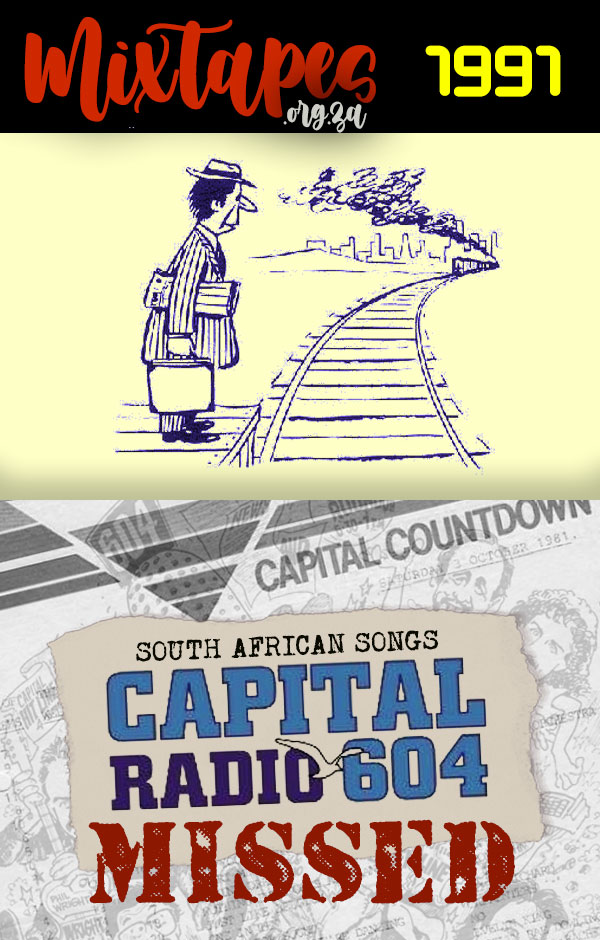
The theme of this mixtape is the coming week’s election, including a selection of songs which deal with South African politics, politicians, protest, and elections. May 29th is South Africa’s 7th post-apartheid election. It marks 30 years since the ‘advent of democracy’ but the situation in South Africa is a mess. As South African citizens are urged to vote on Wednesday, many wonder if there’s any point to it. Clearly, power does not lie in the ballot box, but in the warped and corrupt partnerships between corporates, organised crime, and politicians – ‘mafia bank-rolled politicians’ as Sinazo Mdlalo calls them (in “Gravytrainspotting”). Indeed, some people think politics is actually organised crime, with the wealthy stealing from the poor. Shamrock (in “Political Party”) laments the futility of elections: ‘You can vote for anybody it’s the same problem’.
For one thing, politicians are quick to make promises but slow on delivering. Simmah (in “The Money Never Lies”) asks ‘What happened to promises? What happened to solutions?’ And Skwatta Kamp (in “Politics”) noted, you can vote for the government, but then it’s case of ‘ANC you later’. In “But In Time”, The Pressure Cookies summed up the ballot box dilemma: “I have to make a choice but they all look the same. They all make the same noise”. Sankomota capture that confusion, asking the “Politician”, ‘What’s going on? I have the right to know, don’t leave me here’.
In “Change” Hugh Masekela asks “Why does everybody want to stay in power forever? … Everything must change.” He lists various African leaders who clung on to power for decades, and notes that Mandela set a different example. Whatever complaints we have about our continually failing government, at least our leaders are constitutionally obliged to step down after two terms. However, while the leaders may change, the story has remained the same. The ANC government who now head the most unequal society in the world, which for Freshlyground is a “Banana Republic”. They warn that we are currently in another state of emergency, under the rule of a corrupt and harmful government.
Several songs on the mixtape deal with aspects of the bananarization of our country: Sinazo Mdlalo’s “Gravytrainspotting”, Vusi Mahlasela’s cover of James Phillips’ “Africa Is Dying”, “Potholes And Politicians” by Fuzigish, Tony Cox’s “House Of Parliament Blues” and “Die Fokkol Song” by Koos Kombuis. The Kiffness use laughter as a tried and tested political weapon with their cover of Pink Floyd’s ‘Another Brick In The Wall’: ‘Hey Voetsek! Leave those funds alone. All in all Mzansi is just sick of it all.’ In “Blue Light Brigade” the Kalahari Surfers let Julius Malema speak for himself. ‘Fuck you” he swears at a journalist at a media conference. But given his extreme wealth, he might as well be saying this to the electorate. The government’s blue light brigade is an example of the repressive and belligerent nature of our leading politicians, forcibly clearing the roads so that they can race around without concern for those in their way. Indeed, a case of ‘ANC you later’.
Some of the songs on this mixtape capture an uncertain moment, in the late 1980s and early-to-mid ’90s, when there was hope that democracy and elections might lead us closer to equality and human rights for all. Johnny Clegg and Savuka hoped that “One (Hu)’man One Vote” would be a solution, Prophets Of Da City hoped that we would “Neva Again” see one group oppress another (the Marikana massacre was still to come), in “Moses”, James Phillips and The Lurchers appealed to Mandela, “Please don’t turn out like all of the rest”. And in “Polling Day”, written prior to the 1994 elections, James Phillips suggests that the solution lies outside of the ballot box: “Just let us find ourselves in our own way, then maybe we might just not be needing polling day”.
The mixtape ends with more songs recorded during the apartheid era which, while applying to that context, still apply today. It’s a reminder that the struggle for people’s rights did not end in 1994. Bright Blue warned that ‘We’re on a ship with no direction’ and that we need to “Rock The Boat’ to change the direction of an unjust government. Indeed in 1989 the Kalahari Surfers (in their cover of the Who song) warned us not to be fooled again: that ‘the party on the left’ could become ‘the party on the right’. As has happened. In the 1980s Roger Lucey warned that there would be “No Easy Walk To Freedom”. Little did we know how difficult that road would turn out to be, despite the 1994 elections, and how wide the distance between rich and poor would become.
- One (Hu)’man One Vote – Johnny Clegg and Savuka
- Change – Hugh Masekela
- Political Party – Shamrock
- Politics – Skwatta Kamp
- Banana Republic – Freshlyground
- Gravytrainspotting – Sinazo Mdlalo
- The Money Never Lies – Simmah
- Blue Light Brigade – Kalahari Surfers
- Africa Is Dying – Vusi Mahlasela
- Polling day – James Phillips
- But In Time – Pressure Cookies
- Potholes And Politicians – Fuzigish
- House Of Parliament Blues – Tony Cox
- Die Fokkol Song – Koos Kombuis
- A Song For The ANC – The Kiffness
- Neva Again – Prophets Of Da City
- Politician – Sankomota
- Moses – James Phillips & the Lurchers
- Rock The Boat – Bright Blue
- Don’t Get Fooled Again – Kalahari Surfers
- No Easy Walk To Freedom – Roger Lucey




